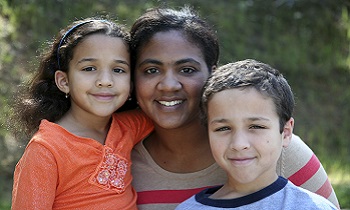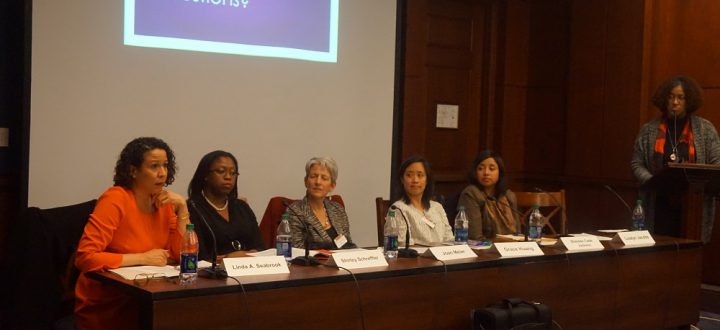Immigrant Women and Domestic Violence

Recommendations for Working with Immigrant Women
Immigrant women are a diverse group and include women who have lived in the United States for one month, as well as women who have lived here for forty years. The immigrant woman who contacts you for help may have entered the United States as a refugee fleeing persecution in her country of origin, as a relative with family members in the United States, as a student, as a tourist, or as a worker seeking better economic conditions.
Shelters sometimes are concerned about the legal or funding consequences of serving battered immigrant women, particularly undocumented immigrant women. Some shelter providers mistakenly believe that it is unlawful to provide services to undocumented women. However, non-profit organizations are explicitly exempt from verifying immigration status as a condition for providing services. Further, any non-profit or government domestic violence services program or shelter that denies assistance to immigrants who are undocumented is violating the Attorney General’s order requiring that services “necessary for the protection of life and safety” be provided without regard to immigration status and is violating civil rights and fair housing laws.
In general, immigration status is not relevant to a battered immigrant woman using your program’s services. The fact that a woman may not be a U.S. citizen or lawful resident should not affect your ability to provide her with services. Her immigration status is only relevant for you to know if it may protect her from abuse, through knowing the risks she may be facing, and helping her become a permanent resident if she is eligible. To help a battered immigrant woman, you do not need to be an expert in the technicalities of immigration law. Your role as an advocate is to empower her by knowing the range of her options, and helping her find the assistance she needs. However, you should consult an immigration lawyer if you have determined that the victim’s immigration status is uncertain.
Newly arrived battered immigrant women whose immigration status is not permanently established – because they are undocumented, conditional residents, or here on visas – have special needs. Typically, their batterers control and manipulate their unsettled immigration status as a means of keeping them in abusive relationships. These women experience the complex intersection of domestic violence with their immigration status.
Their option to reside legally and permanently in the United States may have been restricted by domestic violence. Your role is to learn about possible options, assist battered immigrant women in accessing them, and respect the decisions they make. It is up to the immigrant woman to decide whether she wants to reside in the United States or return to her country of origin.




